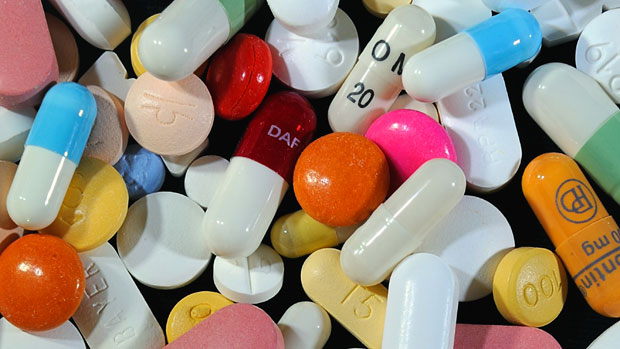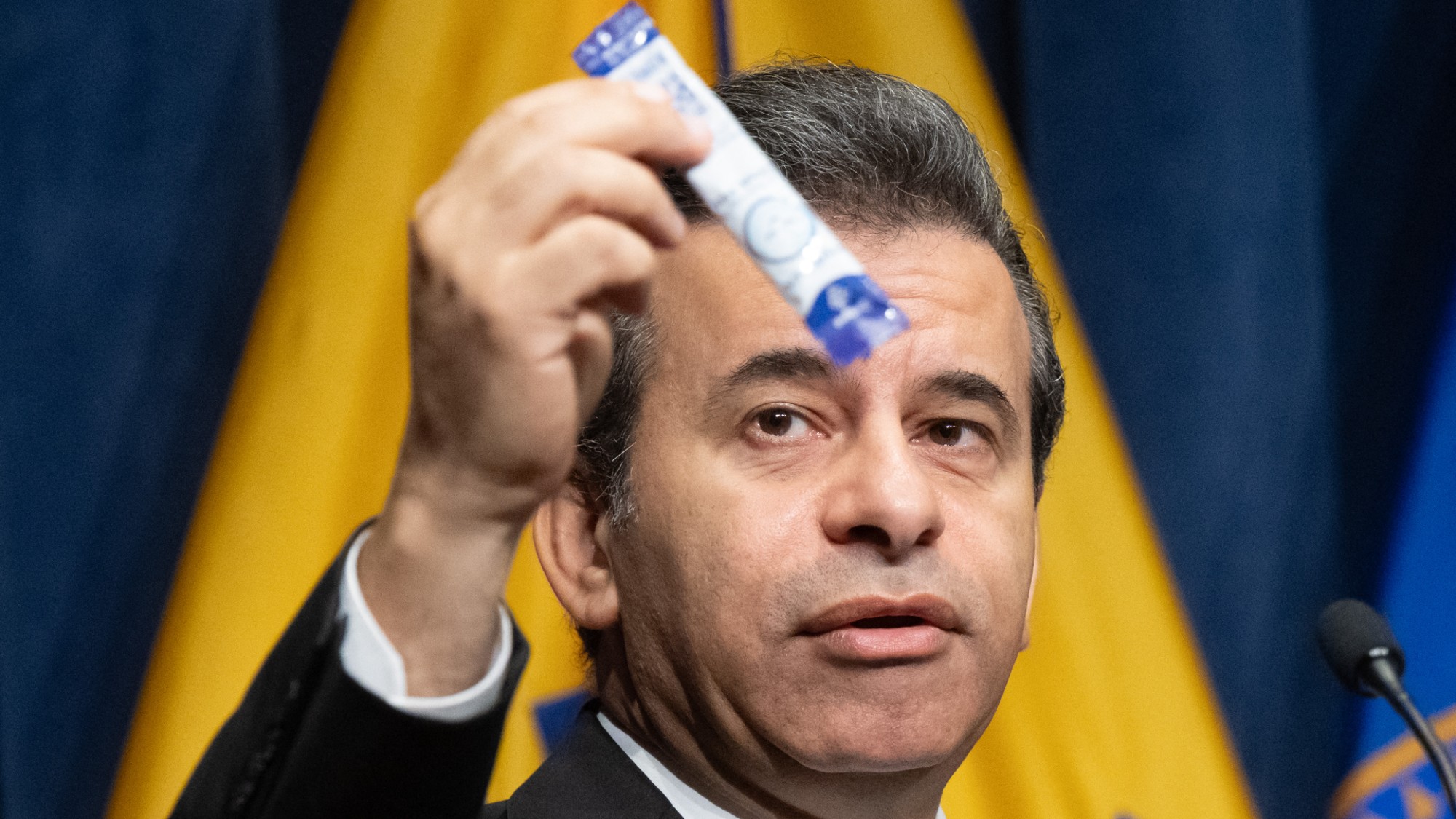How a new pill could reduce asthma attacks
The drug Fevipiprant improves air flow to the lungs by removing muscle in the airway lining, a study has shown

A free daily email with the biggest news stories of the day – and the best features from TheWeek.com
You are now subscribed
Your newsletter sign-up was successful
Scientists from the University of Leicester have successfully trialled a new pill that reduces asthma attacks by targeting airway muscles.
The experimental drug Fevipiprant “is the first oral treatment for asthma in 20 years”, says the Press Association.
The new study shows that the drug works by reducing the amount of muscle in the airway lining. Previous trials had shown that it improves breathing, reduces inflammation and helps to repair the lining of patients’ airways but the new study is the first to show exactly how it does it.
The Week
Escape your echo chamber. Get the facts behind the news, plus analysis from multiple perspectives.

Sign up for The Week's Free Newsletters
From our morning news briefing to a weekly Good News Newsletter, get the best of The Week delivered directly to your inbox.
From our morning news briefing to a weekly Good News Newsletter, get the best of The Week delivered directly to your inbox.
Professor Chris Brightling, from the University of Leicester, said: “Our research shows for the first time that Fevipiprant not only reduces inflammation in the airways, but also reduces the amount of muscle in the lining of the airway. This is likely to explain some of the effects seen in the symptoms and breathing tests following treatment.”
He added: “Our findings suggest that Fevipiprant could have positive long-term effects upon the progression of the disease through remodelling, as well as improve symptoms and reduce attacks.”
The asthma drug “specifically blocks the activation of a muscle protein, which reduces the movement of the immature muscle cells from forming a bundle and blocking the airway”, says Sky News.
There are more than 300 million people who are affected by asthma worldwide and the number is increasing. In the UK there are roughly around 500,000 people who have moderate to severe forms of asthma.
A free daily email with the biggest news stories of the day – and the best features from TheWeek.com
Currently “there are no drugs available on the NHS which treat the build-up of smooth muscle mass as a method of reducing asthma symptoms”, adds Sky News.
For people with severe asthma, “a procedure called thermoplasty, which uses thermal energy to decrease the amount of smooth muscle in the airways, may be offered”, says Medical Xpress. This requires “sedation in hospital and is not a cure, nor suitable for everyone”, the website adds.
Most people in the UK affected by asthma are able to routinely manage the condition with inhaled drugs and steroids.
But Fevipiprant could offer sufferers a way to avoid some of the side-effects associated with using steroids including weight gain.
Dr Himanshu Kaul, a postdoctoral fellow in the School of Biomedical Engineering at the University of British Columbia who helped with the trial, said: "Our computer model represents a milestone towards patient-specific models in respiratory medicine that has the potential to help design new drugs and optimise existing therapies."
-
 The week’s best photos
The week’s best photosIn Pictures An explosive meal, a carnival of joy, and more
-
 The ‘ravenous’ demand for Cornish minerals
The ‘ravenous’ demand for Cornish mineralsUnder the Radar Growing need for critical minerals to power tech has intensified ‘appetite’ for lithium, which could be a ‘huge boon’ for local economy
-
 Why are election experts taking Trump’s midterm threats seriously?
Why are election experts taking Trump’s midterm threats seriously?IN THE SPOTLIGHT As the president muses about polling place deployments and a centralized electoral system aimed at one-party control, lawmakers are taking this administration at its word
-
 A fentanyl vaccine may be on the horizon
A fentanyl vaccine may be on the horizonUnder the radar Taking a serious jab at the opioid epidemic
-
 Nitazene is quietly increasing opioid deaths
Nitazene is quietly increasing opioid deathsThe explainer The drug is usually consumed accidentally
-
 Can TrumpRx really lower drug prices?
Can TrumpRx really lower drug prices?Today’s Big Question Pfizer’s deal with Trump sent drugmaker stocks higher
-
 The UK’s opioid crisis: why the stats don’t add up
The UK’s opioid crisis: why the stats don’t add upThe Explainer A new report has revealed that the UK’s total of opioid-related deaths could be much greater than official figures show
-
 Why the FDA wants to restrict kratom-related products
Why the FDA wants to restrict kratom-related productsIn the Spotlight The compound is currently sold across the United States
-
 US overdose deaths plunged 27% last year
US overdose deaths plunged 27% last yearspeed read Drug overdose still 'remains the leading cause of death for Americans aged 18-44,' said the CDC
-
 Trump seeks to cut drug prices via executive order
Trump seeks to cut drug prices via executive orderspeed read The president's order tells pharmaceutical companies to lower prescription drug prices, but it will likely be thrown out by the courts
-
 FDA approves painkiller said to thwart addiction
FDA approves painkiller said to thwart addictionSpeed Read Suzetrigine, being sold as Journavx, is the first new pharmaceutical pain treatment approved by the FDA in 20 years